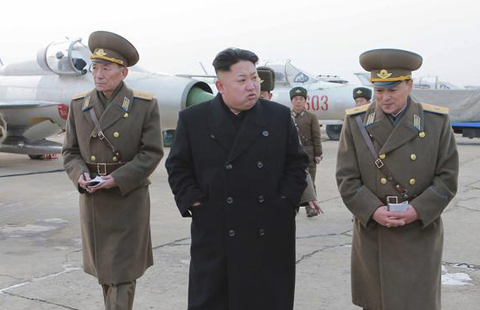High tech, rapid rail driving foreign trade in Chengdu
Updated: 2014-08-22 16:39
(China Daily USA)
|
|||||||||||
Chengdu, a hub city in southwestern China, saw rapid growth in its foreign trade facing with global economic slowdown, thanks to the flourish of its high-tech industries.
The city’s import and export in the first half of this year totaled $ 26. 8 billion, a 12.7 percent increase year-on-year and 12 percent higher than the national rate, according to Chengdu Customs.
IT industry has become an engine for foreign trade growth in Chengdu. The city exported computers, integrated circuits and microelectronic chips worth $ 8.1 billion in the first six months, accounting for about half of its total export volume.
PC giant Dell’s export from Chengdu surged by 95 percent year-on-year to $ 2.4 billion in the first half of this year, as its new global operation base in Chengdu began production since June last year.
Located in Chengdu High-Tech Comprehensive Bonded Zone, the base covers an area of 30,000 square meters and is expected to reach a desktop production capacity of 7 million units a year. The products are sold not only in China but also to overseas markets in Europe and the United States.
Lenovo Group, the world’s biggest PC maker, predicted that its Chengdu base would reach an output of 7 million units in 2014, said the company’s senior vice-president Qiao Song on Aug 11.
“The number is expected to reach 10 million in 2015, making up nearly half of Lenovo’s total output in China and one fourth in the world, ” Qiao said.
Lenovo’s Chengdu base went into production in 2011. It is designed to produce desktop PCs and laptop PCs as well as other products, including mobile Internet equipment. Lenovo has increased investment in the base, where a research and development center and a regional settlement center have been built.
Since semiconductor maker Intel Corp set up a chip package and test factory in the city in 2003, Chengdu has made great achievements in its IT industry and has become a magnet to international IT companies.
The Chengdu High-tech Comprehensive Bonded Zone, second of its kind in western China, is home to a number of leading IT companies, including Intel, Dell, Lenovo, Texas Instrument, Foxconn and Molex.
Chengdu is already China’s fourth largest IT center. 50 percent of the world’s laptop chips are packaged and tested here, and two thirds of iPads globally are made in Chengdu.
Other hi-tech industries, including bio-pharmaceutical, new materials, new energy and aerospace, also grow fast and are becoming new driving force to Chengdu’s foreign trade.
Sagent China Pharmaceuticals Co Ltd, a pharmaceutical company set up in Chengdu High-Tech Comprehensive Bonded Zone in 2006, saw a burst of 200 percent growth year-on-year in its import and export volume in the first half of this year.
Last October, a sterile injectable anticancer drug started mass production in the company and was sold to the United States, making the company the first Chinese pharmaceutical manufacturer to obtain American FDA certification and export pharmaceutical finished formulations to the international market.
“Sagent is applying for certification for nine products, and new products are expected to start mass production by the end of this year. We are also planning new production lines that will invest hundreds of millions dollars,” said Tian xinxin, the company’s research and development director.
“Chengdu has solid foundation for bio-pharmaceutical industry with so many good universities, research institutes and hospitals. We look forward to further exploring the international market together with other pharmaceutical companies in Chengdu,” Tian said.
The highly developed logistics system is strong support for Chengdu’s foreign trade.
Chengdu is the fourth major air hub in China after Beijing, Guangzhou and Shanghai, with 157 domestic and 74 international routes, connecting it to 108 domestic and 65 overseas destinations from Chengdu Shuangliu International Airport.
The inland city has also expanded its overland connections with Europe and other parts of the world including an express freight railway that ends in Lodz, Poland.
The Chengdu-Europe express rail, opened in April 2013, carries laptops, auto parts, home appliances and other daily necessities worth millions of dollars from Chengdu to Europe once a week. Since June, the iPads produced by Foxconn’s Chengdu plant have been exported to Europe through the express rail.
Local government and operator of the rail are planning to shorten the running time from 14 days to 12 days and increase the frequency of trains to twice a week at peak season.
The express rail is also expected to operate a return route service in the second half of the year, bringing European products into China.
In April, the National port administration office agreed to set Chengdu railway port, the starting station of the Chengdu-Europe express rail, as a temporary national port, which allows Chengdu to apply for the permission to import meat and cars through the rail, according to Chengdu Customs.
Hot Topics
Eagle training is an ancient tradition of Kazak people living in Central Asia. But less eagles are being raised since the raptor was listed as protected creature.
Editor's Picks

|

|

|

|

|
|







